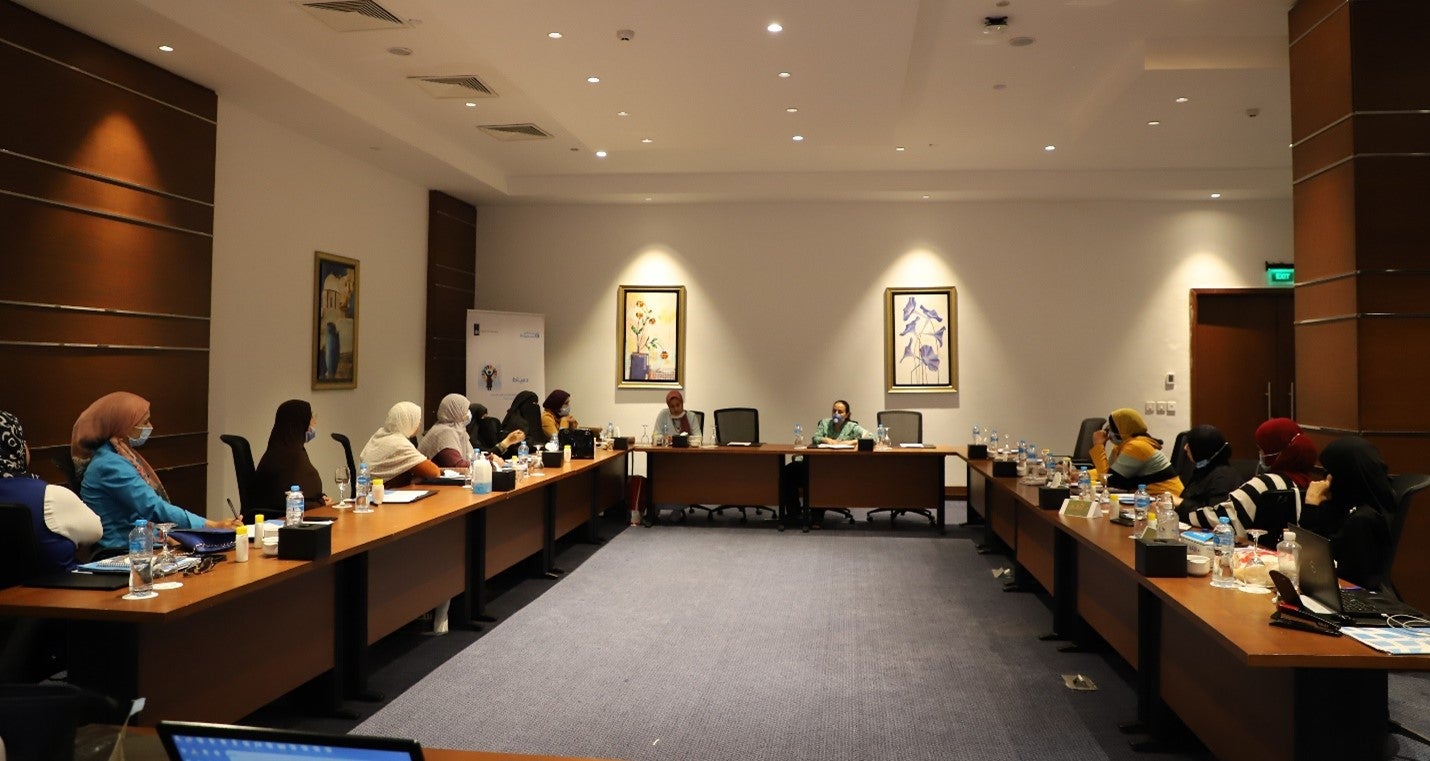Take Five: “I believe that all efforts aiming at enhancing women’s access to economic opportunities and all efforts aiming at ending violence against women should go hand in hand.”
Date:
Mona Ezzat is an experienced development practitioner, a researcher, and an expert in the field of women’s economic rights. Ezzat was the facilitator of the training programme entitled “Designing Marketing Plans” which was organized by UN Women Egypt within the framework of the Safe City and Safe Public Spaces programme in Damietta. The training programme “Designing Marketing Plans” was composed of a series of 7 workshops delivered between September 1st to September 24th, 2020. The training targeted 13 women from Ezbet ElBorg City in Damietta Governorate and aimed at equipping them with the required knowledge to set marketing plans for various products they develop. UN Women Egypt implements the Safe City and Safe Public Spaces programme in partnership with multiple national stakeholders including Damietta Governorate, the National Council for Women (NCW) and in collaboration with local civil society organizations in Damietta, with the generous support of the Kingdom of the Netherlands.
We spoke to Ezzat to learn more about the training programme and her perspectives on the gendered challenges facing women of Ezbet ElBorg in their quest to empower themselves economically.

Mona Ezzat (in the middle to the right) facilitating the final session of the training program on 24 September 2020. Photo: UN Women /Mohamed AbdelHameed
Please tell us about the rationale of this training programme and its objectives
This programme recognizes the link between violence against women and women’s economic empowerment. I believe this is a very important development and a step in the right direction in the fight to end violence against women. Economic empowerment gives women more tools to resist various forms of violence. When women are economically empowered, they can protect themselves and protect one another. I believe that all efforts aiming at enhancing women’s access to economic opportunities and all efforts aiming at ending violence against women should go hand in hand.
What we are trying to achieve through this training is to provide participants with the necessary knowledge and skills to enhance the success of their businesses. My ultimate objective is to help the participants of the workshop achieve social and economic solidarity between themselves, because I think solidarity is key to addressing the economic and social problems that they face. I hope that the participants become inspiring role models for the women in Ezbet el Burg city, and can inspire other women to become more economically independent.
How do you ensure that the training programme suits the capacities and needs of women in the local community of Ezbet el Burg?
This training programme is based on a participatory approach that allows participants to be fully engaged and to continuously share their ideas and feedback, which helps them in defining their own needs and priorities.
We try to simplify project management and marketing concepts and to focus on practical examples from the participants’ community and environment. The training programme was divided into separate intervals to give participants the chance to implement the ideas that they learned and to share their feedback.
What are some of the specific gendered barriers that face the women of Ezbet ElBurg and women in similar locations when it comes to economic empowerment?
Ezbet ElBurg is a relatively small community and just like other similar communities in Egypt, many women have restricted mobility due to social norms, and some women often need several levels of family approvals to go out of their homes to engage in any social or economic activities. These social norms deprive women from engaging in many learning and economic opportunities. For example, in a community such as Ezbet ElBurg, women cannot easily take the decision to travel to bigger cities to learn a new skill or to buy products.
Another important challenge is that women in Ezbet ElBorg, as well as in different areas across Egypt and around the world, continue to be responsible for most of the unpaid care responsibilities of the household. Therefore, they have limited time and options to participate in economic activities and most of them prefer home-based businesses.
How did the COVID-19 crisis impact women business owners in Ezbet ElBurg?
COVID-19 had far-reaching impacts on small and micro-sized businesses in locations such as Ezbet el Burg because their local economy is very fragile, and the capital of their businesses is very little. Also, there are generally poor economic conditions in such locations so when COVID-19 hit the local economy, community members focused their purchasing power only on essential supplies such as food, and the demand for non-essential products was negatively and dramatically impacted.
In our training programme, we try to help participants have a sound long-term plan for their businesses so that they can become more resilient when facing economic crisis such as the current global crisis.
How do you ensure the sustainability of the impact of this training programme?
Sustainability is at the core of this programme. We developed a business plan and a follow-up plan at its conclusion. We will continue to meet periodically in the future to monitor and evaluate the implementation of their business plans and to discuss any challenges as they arise. We will also aim to link the businesses of the participants with other initiatives and programmes that leverage their business sustainability.